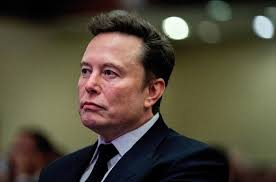Elon Musk's secret scandals: drugs, custody battles, and White House departure.

Investigations by "The New York Times," based on internal documents and testimonies from close sources, revealed that billionaire Elon Musk faced severe personal crises during his rise as one of the prominent allies of U.S. President Donald Trump, coinciding with his massive donations amounting to $275 million to support his election campaign.
Sources indicated that Musk, 53 years old, was consuming large amounts of ketamine, affecting his health, especially his bladder, a known effect of chronic drug use.
He also used ecstasy and psychedelic mushrooms, carrying a daily pill box containing 20 pills, including the stimulant "Adderall," as shown in images and documents reviewed by the newspaper.
Although drug use inside the White House was not confirmed, his behavior raised concerns among those around him, as he insulted ministers, made gestures described as "Nazi-like," and provided incoherent answers in pre-prepared interviews.
Musk's family crises escalated, as he engaged in legal disputes over the custody of his children. Grimes, the Canadian singer and his former partner, filed a lawsuit regarding their son "X" (5 years old), expressing concerns about his presence at the White House and globally broadcast events, ending a secret agreement aimed at protecting children from the media. Sources also mentioned her worries about his frequent travel and sleep deprivation.
In a separate context, conservative writer Ashley St. Clair revealed a secret relationship with him, having a child together. She mentioned rejecting a large sum of money to conceal the paternity, accusing him of attempting to silence her through a court order.
Musk heads companies working with the government, such as "SpaceX," which requires its employees to be drug-free. Despite random screenings, sources reported that he received prior warnings to avoid positive results.
Musk announced his resignation from his government position on Wednesday evening, admitting neglecting his business projects in favor of politics.
Previously, Musk had spoken about his mental struggles, stating in a post: "I experience extreme highs and lows and constant stress," preferring ketamine _which he claimed to take every two weeks by prescription_ over traditional antidepressants. However, a report by "The Wall Street Journal" revealed a history of recreational drug use, while Tesla's board expressed concerns about his mood swings and their impact on the company.
The White House declined to comment, while Musk evaded journalists' questions during a conference with Trump, saying, "Let's move forward," casting doubt on the credibility of "The New York Times."
Neuroscientist Philip Lo, one of his former friends, commented, "Elon has increasingly crossed the boundaries of bad behavior."